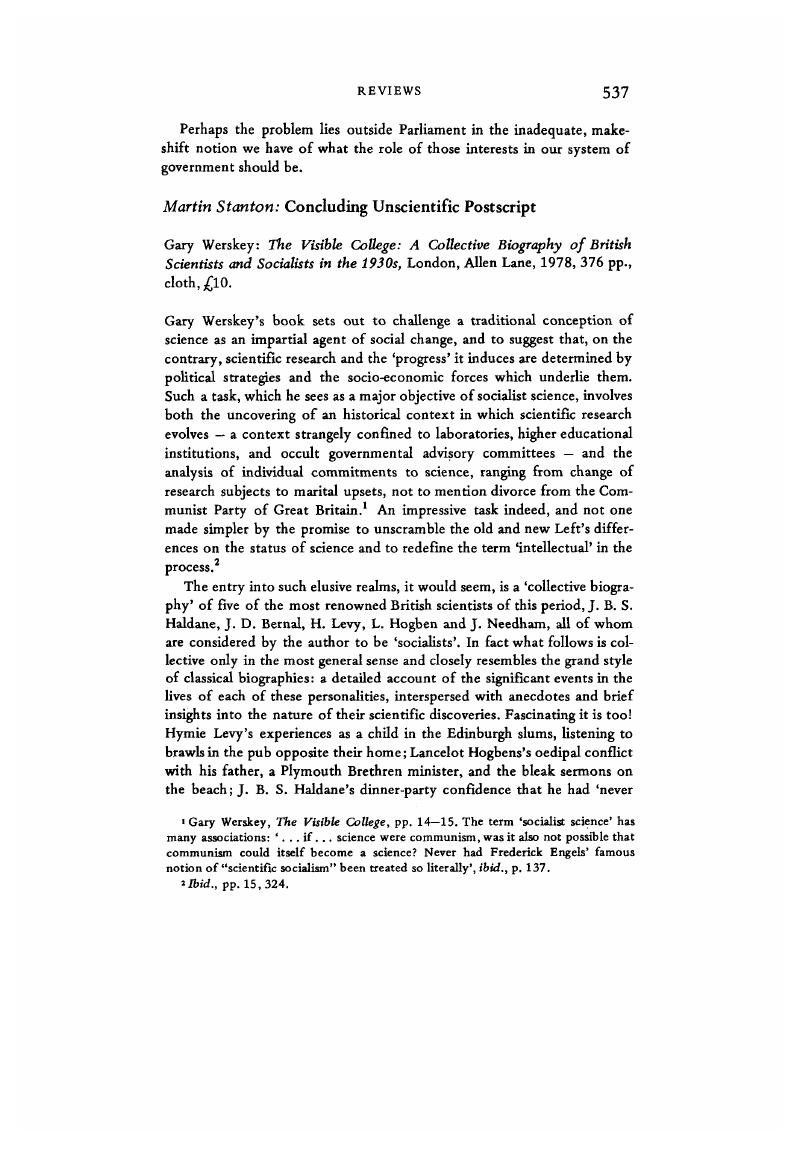No CrossRef data available.
Published online by Cambridge University Press: 28 March 2014

1 Werskey, Gary, The Visible College, pp. 14–15 Google Scholar. The term ‘socialist science’ has many associations: ‘… if… science were communism, was it also not possible that communism could itself become a science? Never had Frederick Engels’ famous notion of “scientific socialism” been treated so literally’, ibid., p. 137.
2 laid., pp. 15, 324.
3 See Werskey, Gary, ‘ Nature and politics between the Wars’, Nature, Vol. 224, 1 11 1969 , pp. 462–72Google Scholar.
4 Hogben did intend to cite Levy as the author of Mathematics for the Million, but this was more the gesture of friendship and professional respect than the expression of political solidarity. Levy felt that ‘he could not assume the authorship of a work whose mathematics were entirely “pre‐Newtonian” in character, and still call himself a professional mathematician’, Werskey, , The Visible College, p. 165 Google Scholar.
5 See Holorenshaw, Henry, (pseud. of Needham, Joseph), The making of an honorary Taoist’, Changing Perspectives in the History of Science, Teich, M. & Young, R. (eds), London, Heinemann, 1973, pp. 1–2, 19–20 Google Scholar.
6 Werskey, , The Visible College, p. 20 ff. & pp. 214–15Google Scholar.
7 Ibid., p. 23.
8 Snow, C. P., ‘Rutherford and the Cavendish’, The Baldwin Age, Raymond, J. (ed.), London, Eyre and Spottiswoode, 1960 Google Scholar.
9 Werskey, The Visible College, p. 335.
10 Cf. Althusser, Louis on the ‘error’ in Lecourt, Dominique, Lyssenko, Paris, Maspero, 1976 Google Scholar.
11 Werskey, The Visible College, p. 14.
12 Ibid., pp. 162–64, 5, 250.
13 Ibid., p. 29; cf. Haldane, J. B. S., ‘Eugenics and Social Reform’, Possible Worlds, London, Chatto & Windus, 1930, pp. 190–96Google Scholar.
14 Werskey, The Visible College, p. 334.
15 Ibid., p. 337.